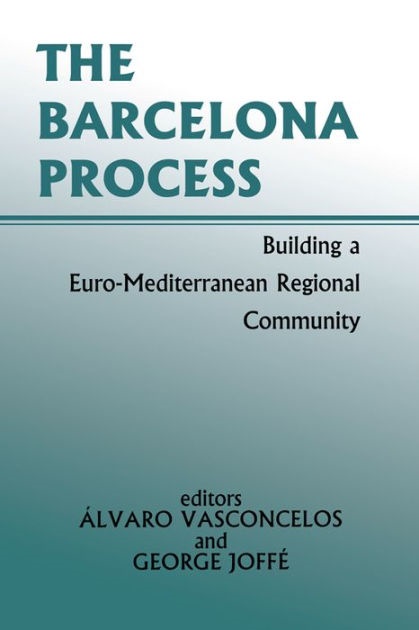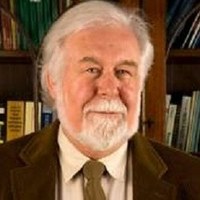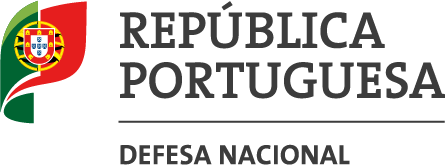I first encountered the IEEI in the early 1990s, shortly after the European Commission had asked Roberto Aliboni, of IEEI’s sister institute in Rome, to organize a network of Western Mediterranean security policy institutes in order to inform its approach to the Southern Mediterranean in the wake of the Maastricht Treaty. Shortly thereafter, the network was expanded around all the South Mediterranean littoral states and the IEEI, under Álvaro Vasconcelos and his wife, Maria do Rosario de Moraes Vaz, took over its management, with a three-year grant from the Commission covering the costs. Given my interests in North Africa, particularly in Morocco, I began to take part in conferences that it organized, both in Lisbon, on occasion elsewhere in Portugal and in the South Mediterranean region.
In late November 1995, the European Union introduced its Euro-Mediterranean Partnership policy (the ‘Barcelona Process’) and, as I had also undertaken a research project into European Mediterranean policy at the Royal Institute of International Affairs in London (RIIA-Chatham House), I became an ever-more avid participant in the IEEI’s Mediterranean activities. Soon Álvaro Vasconcelos suggested that I might like to participate in the management of the network, now named ‘EuroMeSCo’, and I became a regular visitor to the institute, situated in Lumiar, on the outskirts of Lisbon itself.
I participated in the design of the byelaws which were to govern the operation of the network, in the website that the Institute created for the network and in the organization of conferences and publications that it held. I was also able to publish widely in the publications series that formed part of the network’s activities and even in the Institute’s own journal. On occasion, with the Institute’s help, I also published articles on international and regional affairs in leading Portuguese newspapers. That help was essential for, although I eventually was able to read material in my own field in Portuguese, I was never able to master the language. Quite apart from my own linguistic incompetence, the main reason for this was the fact that virtually everybody with who I worked spoke excellent English or French so that the pressure to learn Portuguese was never there.
My own range of contacts with corresponding institutes in Europe and in the South Mediterranean region expanded dramatically, as did my knowledge of the intricacies of the European Union and the Commission. Despite my profound disagreement with aspects of the Union’s policies, particularly on economic development, which I was able to express at the many meetings the Institute organized alongside Commission representatives, I also came to greatly respect the underlying normative principles that governed and, in theory, still govern European policy. I remain committed to that European vision, despite the migrant crisis, the international marginalization of Europe, the explosion of populism in some European states or the collapse of the Middle East and North Africa into the chaos of civil war and foreign intervention in the wake of the Arab Spring. That, in Britain today, places me amidst an increasingly beleaguered albeit large minority.
I was also, through the Institute’s activities, able to extend my professional contacts in the security field into the United States and – briefly – Brazil. The American engagement occurred at the start of the new century, at the time of the invasion of Iraq in 2003, an event about which I had very decided views. Having been to Iraq in 1990 and again in 2000, I had some feel for the reality of what the United Nations sanctions had done over that decade and, having had a lengthy interview with the Iraqi vice-premier, Tariq Aziz, I also knew something of the official thinking in Baghdad, not to speak of my repeated contacts with the British government over the consequences of the policy it had adopted. The American experience, therefore, complemented these impressions and resulted in many lengthy discussions in Lisbon over the invasion to which both I and the institute’s staff were resolutely opposed. This opposition was to cost the institute dear, for it was to lose the financial support of the Portuguese ministry of defense as a result. At the time, however, such an outcome was, perhaps, not so obvious to us but we became increasingly aware of the consequential changes in the wider field of international relations and their implications for the South Mediterranean region as a result of what had happened.
There was another, quite unexpected consequence of my engagement with the IEEI. This was the fact that, as a result of my frequent visits, I also ‘discovered’ Portugal. Although the British mantra is that Portugal is Britain’s oldest ally and we all know of the Duke of Wellington’s ‘Peninsula Campaign’ during the Napoleonic wars, the reality is that few Britons are aware of Portugal other than as a summer tourist destination. Its own history and culture remain as opaque to the vast majority of Britons as its language! Over the years, however, I was able to discover what national ignorance had obscured, both through my own explorations of Lisbon and through the engagement with the Institute and through it, with Portuguese officialdom and the country’s diplomatic and military arenas. I am not sure who benefitted more from these experiences, although I suspect I was, by far, the prime beneficiary.

In early 1997, however, my engagement with the IEEI was temporarily interrupted as I became the deputy-director of Chatham House. We remained in touch, however, although I was now a member of one of the corresponding institutes, rather than of the IEEI itself. I maintained my interests in the evolution of the Barcelona Process and its successor in the European Neighborhood Policy and I recall collaborating with the IEEI in its initiative to bring together the protagonists in the East Timor conflict. We were jointly able to arrange for a meeting of the leaders of the East Timorese resistance and their Indonesian counterparts in London, thus bringing together for the first time the Nobel laureate, Ramos Horta and Dewi Fortuna Anwar, amongst others. She was to become the Indonesian Deputy-Secretary for Political Affairs between 2010 and 2015 and then, from 2015 to 2017, she was Deputy for Government Policy Support to the Vice-President of Indonesia. In hindsight, the meeting proved to be an early catalyst for a beginning of the resolution of the East Timor crisis. As far as I was concerned, however, I only formally returned to Lisbon and the IEEI in 2000 after my appointment at Chatham House had ended and I had had a short spell of research leave at the University of Melbourne in Australia. The world to which I returned was to be, however, very different to the one that I had left three short years before.
On September 11, 2001, the al-Qa’ida attacks on New York and Washington occurred, provoking the ‘war on terror’ and a violent American response in Afghanistan and, later, in Iraq, which profoundly altered the international environment in which the EuroMeSCo network had been conceived. At around the same time, but quite independently, the European Commission decided that it no longer wished to provide a grant to fund the network’s activities but that it would, instead, contract the management of the network to a specified supplier. For me, the distinction was crucial, for under the original arrangement, the IEEI was free to decide how it was to meet the Commission’s goals, whereas, under a contract, the Commission would actually determine the way in which this would be achieved, in accordance with European law.
There was, however, little room for negotiation for the Commission held the crucial card – finance. I was asked to head the new administrative structure that the Commission required of the IEEI and agreed to do so despite the onerous burdens that it implied. My state of health, however, eventually precluded this solution and the IEEI had to find an alternative way forward although, in the end, no satisfactory solution could be established. It seemed to be clear that the original principles upon which the IEEI’s engagement with the Commission’s objectives had been established and the nature of the network itself no longer really applied and, by 2007, when Álvaro Vasconcelos was appointed director of the European Union’s own research institute to Paris, others were ready to take over. At that point I, too, stood down for the principles upon which the IEEI had operated and which I had endorsed began to slowly change, with a much greater emphasis on national rather than regional affairs involving the Mediterranean basin, and growing problems over funding, given the impending global financial and economic crisis – and Paris was to be another story!

After leaving Chatham House in 2000, George Joffé taught a post-graduate course on the international relations of the Middle East and North Africa for fifteen years at the University of Cambridge and supervised PhD and MPhil dissertations there until he retired in 2017.




